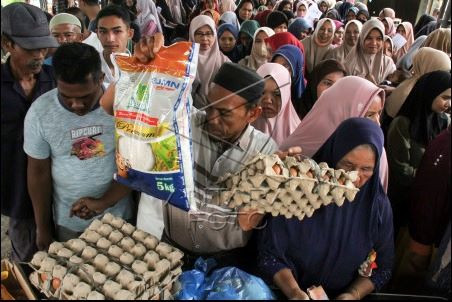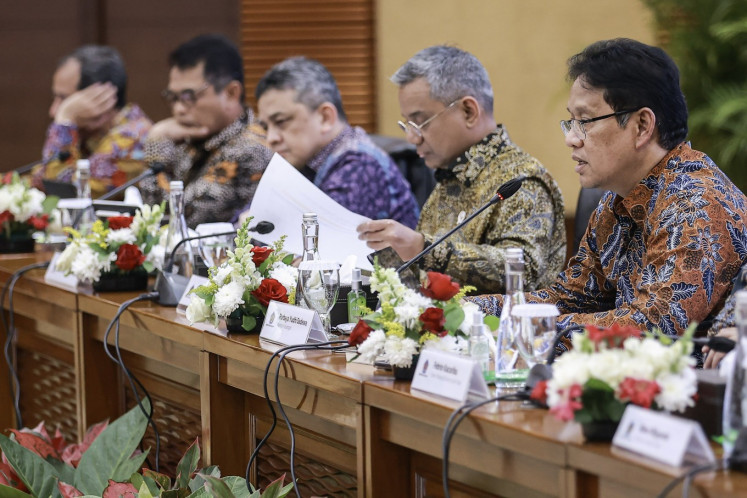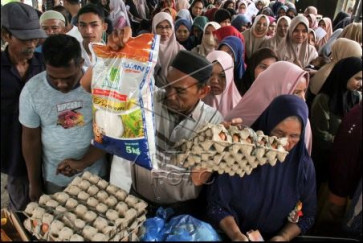Popular Reads
Top Results
Can't find what you're looking for?
View all search resultsPopular Reads
Top Results
Can't find what you're looking for?
View all search resultsDrums of war on inflation beaten from Sumatra
Regional cooperation can eliminate food supply disruptions, especially in the Sumatra region, by fulfilling inter-time and inter-regional availability between surplus and deficit.
Change text size
Gift Premium Articles
to Anyone
T
he current geopolitical conflicts in Europe and the Middle East should not be seen as only affecting the warring states and their peoples. The conflicts have had a ripple effect all the way to Indonesia.
One of these impacts is inflation due to imports (imported inflation), which of course has adversely affected national economic stability. If you look closely, the food and energy sectors are the sources of imported inflation.
This is reasonable, considering that our country still imports a lot of food, such as wheat. Many of the basic ingredients that make up noodles and other foods are supplied by one of the countries currently experiencing conflict, Ukraine. Indeed, there are substitutes for producing countries and alternative food sources, but at least this is enough to provide a shock in the form of temporary inflation. Judging from the source of the problem, this category is included as an external cause.
However, there are also causes that originate internally, or from within the country, for example the El Niño climate phenomenon. The impact of El Niño, which caused drought from last year to the beginning of this year, has certainly changed, shifted or even reduced the capacity and planting patterns of national agriculture. This clearly has had an impact on the domestic food supply. The easy short-term solution is generally to import, but of course this reduces food sovereignty and also erodes the state budget.
But there is no other way than this. After El Niño, we should be alert because at the end of 2024 it is projected that La Niña will come our way. The La Niña effect will result in flooding in a number of areas, especially the national food basket, which will result in crop failure.
This should serve as a collective warning to be more serious about anticipating domestic food supply deficits instead of using the easy method of importing. This seriousness is absolute because national inflation figures are largely contributed to by increases in food prices.
Inflation needs to be controlled, because inflation reduces prosperity. As an illustration, inflation in May 2024 on an annual basis was 2.84 percent, a decrease compared with the previous month of 3 percent. This figure is considered safe, because it is still within the consensus target of 2.5 ± 1 percent in 2024 and 2025. This inflation figure is called Consumer Price Index (CPI) inflation. In terms of formation, CPI consists of core inflation, volatile food (VF) inflation and administered price (AP) inflation.



















